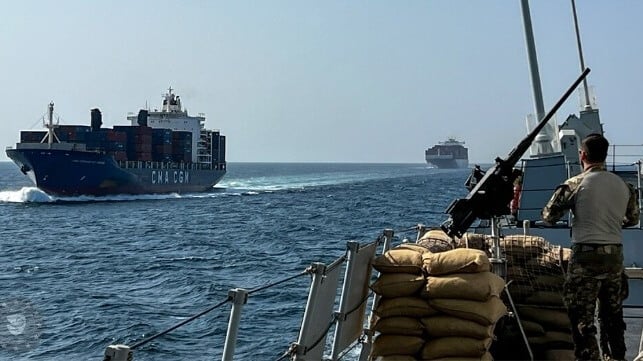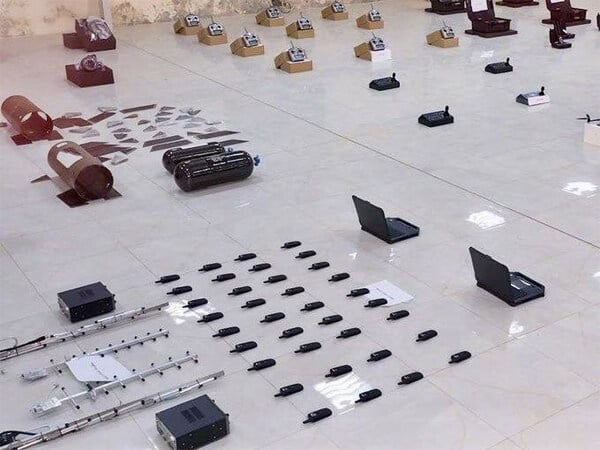EU Extends Aspides Freedom of Navigation Mission in the Red Sea to 2026

The Council of the European Union confirmed on Friday, February 14, the decision to extend the mandate of the EU maritime security operation in the Red Sea and surrounding areas for another year. After a strategic review of EUNAVFOR Aspides and its results, the council extended the mission till February 28, 2026, with an anticipated cost of over €17 million ($17.8 million).
Aspides was launched on February 8, 2024, as a defensive mission to protect shipping in the Red Sea, including the Bab al-Mandeb and the Gulf of Aden as well as a broader reach to the Arabian Sea, Gulf of Oman, the Persian Gulf, and the Strait of Hormuz. The EU set it up to protect shipping but did authorize it to return hostile fire compared to the U.S. operation which had a more offensive mandate to stop the Houthis’ actions.
Patrols and protection missions commenced in February 2024 as well as supporting search and rescue and other operations. Aspides’ command reports that in its first year over 640 merchant ships were supported with over 370 receiving close protection escorts. Vessels are required to request assistance from the forces. Warships participating in the effort include French destroyers, the Italian destroyers Caio Duilio and Federico Martinengo, and the more recent addition of the Greek vessel Hydra. Other countries contributed staff to the effort which is under the command of Read Admiral Vasileios Gryparis of the Hellenic Navy.
As part of its defense of merchant shipping, Aspides reports it has destroyed four ballistic missiles, 18 UAVs, and 20 USV drones. A total of 50 seafarers were also rescued both from vessels damaged by the Houthis as well as from other marine incidents in the area. Aspides protected the salvage mission and the efforts to tow the burning taker Sounion last year.
The decision to extend the mission came despite the Houthis a month ago promising to participate in the Gaza ceasefire and no longer target international shipping. No hostilities have been reported since mid-January. The Houthis said they would continue to target ships associated with Israel and have threatened to resume the attacks if the ceasefire collapsed.
The Council also expanded the mission for Aspides to further ensure maritime situational awareness. It said that Aspides should be able to collect information on arms trafficking and shadow fleets. Aspides will be sharing this information with a range of international organizations to enhance coordinated law enforcement efforts.

Some of the components seized by the Yemeni Coast Guard (US CENTCOM)

that matters most
Get the latest maritime news delivered to your inbox daily.
U.S. Central Command (CENTCOM) reported last week that the legitimate government of Yemen and its Coast Guard was able to interdict a shipment of materials from Iran to the Houthis. The Yemen Coast Guard interdicted a dhow in the southern Red Sea that CENTCOM says was destined for Hodeidah port and reportedly originated in Iran.
The dhow had a 40-foot container containing qualitative military equipment, including cruise missiles' structures, jet engines used in cruise missiles and suicide drones, and reconnaissance drones, in addition to marine radars, a modern jamming system, and an advanced wireless communications system. It is the first interception reported by the Yemeni Coast Guard, but CENTCOM has reported several seizures in addition to its efforts to destroy stockpiles of weapons in Houthi warehouses.
